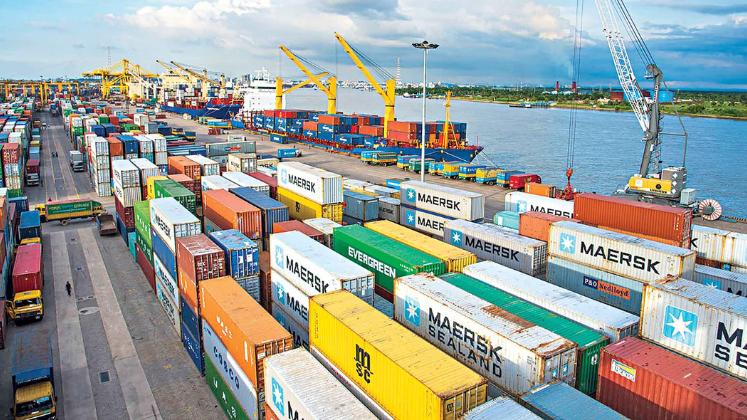
The Chittagong port is presently facing a serious lack of 40-foot containers, which is having a big influence on export commodities shipping.
Due to the recent holidays, port congestion in Asia, rerouted ships as a result of Red Sea attacks, and an export reliance on larger containers, several mainline operators are struggling, including Hapag-Lloyd, Mediterranean Shipping Company, Ocean Network Express, and Maersk Line.
Feeder vessel operators report that to ease the shortage, mainline operators are importing empty 40-foot containers from outside places like China, India, Dubai, and numerous African countries.
Sea Consortium has recently brought in at least 500 twenty-foot equivalent units (TEU) of empty 40-foot containers on two ships to Chittagong port, with more containers en route.
Export-bound containers are first loaded at different private depots and then carried to the port according to the ship’s itinerary. Nineteen Chittagong inland container depots are involved in this operation.
The Bangladesh Inland Container Depots Association’s secretary general, Ruhul Amin Shikder, claims that the scarcity is particularly noticeable on routes to Europe and America, which presents difficulties for exporters.
Fifty-five per cent of imported commodities into Bangladesh are transported in 20-foot containers, whereas forty-five per cent utilise 40-foot containers, according to data from the Inland Container Depots Association. Twenty-foot containers are used for 30 per cent of export shipments, and forty-foot containers are used for 70 per cent of shipments.
Through Chittagong port, approximately 7 lakh TEU of container goods are exported and about 13 lakh TEU of container goods are imported annually. Ready-made clothes make up the bulk of these exports.
Due to the requirement of transiting containers through transshipment ports such as Singapore, Port Klang, and Tanjung Pelepas in Malaysia before reaching Chittagong, shipping lines are currently experiencing delays and increasing prices. The supply chain is being severely impacted by this disturbance.
Port operations have been disrupted for at least 20 days in the last three months due to two Eid holidays and a natural disaster.
A five-day government holiday in mid-April for Eid-ul-Fitr and Pahela Baishakh, Cyclone Remal in late May, and the Eid-ul-Adha holidays in June collectively resulted in significant congestion and container shortages.






